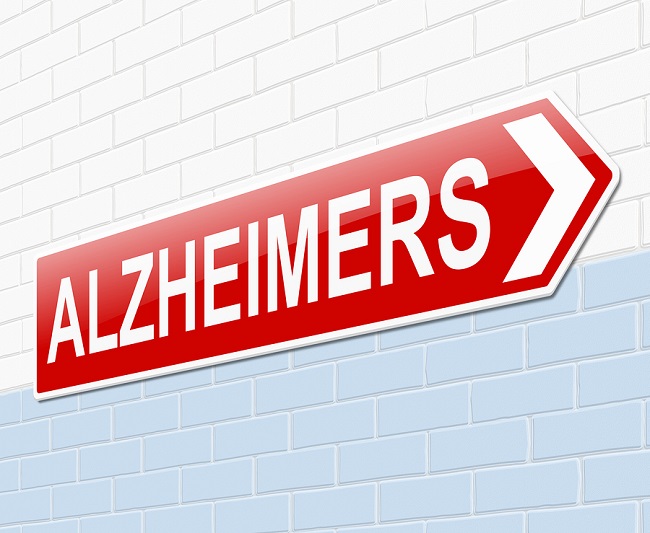- Make It Yourself Lavender Heart-Shaped Bath Bombs!
- 20 Things You Never Knew About “Down There”
- 12 Best Foods For Those Suffering From Arthritis Pain
- 12 Personal Hygiene Mistakes Almost Everyone Makes (Mom Never Told You About #4!)
- 15 Medicinal Plants And Herbs From The Cherokee People
- 12 Mind-Blowing Benefits Of Drinking Coconut Water During Pregnancy
- 12 Outstanding Winter Foods That Won’t Fatten You Up Like A Christmas Turkey
Alzheimer’s is Preventable

Photo credit: bigstock
More than 5.4 million people in the USA have Alzheimer’s disease at this printing, with hundreds of thousands that will develop it within the next few years. More than half a million people will die from this disease each year, making it the third leading cause of death. For many of us, the thought of losing your mind, your personality, as well as your dignity, is a scary thought. Unfortunately, too many doctors don’t discuss ways to prevent this disabling disease. Why? Perhaps it’s because a doctor’s career depends upon their mind and the thought that they, too, might become a victim of this disease is just too frightening to even talk about!
So while early diagnostic tests don’t really exist and successful treatment options, well, let’s face it, there aren’t any, perhaps this is the real reason why no one wants to talk about this disease. However, rather than sit back and say that the situation is hopeless, doctors should talk to their patients about prevention, rather than wring their hands until there is a cure.
SEE ALSO: 10 Early Warning Signs of Alzheimer’s
Doctors should be counseling patients who are in their 20’s or 30’s about the important lifestyle changes that will promote both a healthy heart and brain function for their entire lives. As things stand, there is a lot of evidence that shows several lifestyle factors, especially diet, are the driving force behind Alzheimer’s disease.
The misguided health guidelines that we have been following for the past 60 or so years have played a major role in the dramatic rise of Alzheimer’s disease. The fact is your brain cannot function properly without fat. However, the types of fats you eat are what make all the difference. Avoid trans-fats, and hydrogenated fats, such as corn oil or soybean oil, or margarines and, instead, add healthy fats to your diet such as avocados, organic eggs (especially the yolks), coconut oil, organic nut oils, raw nuts, butter from grass fed cows, raw dairy, and grass fed meats. Read more about healthy food swaps.
Check out the 14 easy changes you can make to your diet to help optimize your brain function and avoid Alzheimer’s disease.
1. Increase your consumption of healthy fats
Such as the one’s listed above; this includes animal based healthy omega-3’s. These healthy fats are what your brain really needs to keep working at its absolute best. Be sure you are getting plenty of these omega-3’s through fish oil supplements. (Supplements are best as most fish are now contaminated with mercury) A high consumption of these omega-3’s will help prevent the cell damage Alzheimer’s causes, which will greatly lower your risk of developing this terrible brain disorder.
2. Avoid sugar and fructose
Keep your sugar levels at a bare minimum. Your fructose intake should be below 25 grams per day or even 15 grams per day if you have any kind of insulin resistance.
3. Improve your gut flora
Eat more fermented foods and/or take high potency, as well as high quality, probiotic supplements.
4. Avoid gluten and casein
This means avoid wheat and pasteurized dairy. Don’t avoid all dairy fat, butter is super beneficial, but avoid pasteurized dairy products. Gluten makes your gut much more permeable, which will allow proteins to get into your bloodstream where they shouldn’t be. This will then make your immune system overly sensitive and encourage inflammation and autoimmunity, both of which are known to play a role in the way Alzheimer’s disease develops.
YOU MIGHT ALSO LIKE: Top 12 Foods that Reduce the Risk of Alzheimer’s
5. Eat a diet rich in folate
Organic veggies are your best form of folates, without a doubt. Eat plenty of fresh, raw veggies every day and avoid folic acid supplements as there are inferior versions of the natural folate your brain needs.
6. Reduce calorie consumption or fast intermittently
Intermittent fasting is a great way to jump start your body into remembering how to burn fat and repair your leptin resistance. Fast at least 16 hours per day and avoid many of the problems that lead to Alzheimer’s disease.
7. Improve your magnesium levels
There has been some exciting research lately that suggests that Alzheimer’s symptoms decrease with increased levels of magnesium in the brain. Unfortunately, almost all magnesium supplements won’t pass the blood brain level. There is a new one however, threonate, that seems to work. This might be the answer in the near future for treating this disease.
Continue to Page 2

Photo credit: bigstock
8. Exercise regularly
Some studies have suggested that exercise can change the way the amyloid protein is metabolized, which would slow down the onset, and possibly even the progression, of Alzheimer’s. Exercise leads to improvement of the memory and growth of the hippocampus. Find out 5 of the most vital exercies you may do.
9. Optimize vitamin D levels
Get plenty of safe sun exposure. There have been studies lately that show some strong links between low levels of vitamin D in Alzheimer’s patients. It’s though that optimal levels of vitamin D improve the amount of important chemicals that are brought to your brain and improve the cell function. Vitamin D might also have beneficial effects on Alzheimer’s due to its anti-inflammatory and immune boosting compounds. Your body must have sufficient vitamin D for the proper functioning of your immune system.
10. Eliminate and avoid mercury from your body
Dental fillings can be as much as 50 percent mercury by weight and are one of the major ways we get mercury introduced into our bodies. If you have mercury fillings, have them changed immediately. Afterwards, doing a heavy metal detox program will be super beneficial.
11. Eliminate and avoid aluminum from your body
There are many sources of aluminum in our world today, such as antiperspirants, aluminum cookware, even vaccine adjuvants.
12. Avoid flu vaccinations
Almost all flu vaccinations contain both aluminum and mercury which are both well-known neurotoxins and immunotoxicin agents.
13. Avoid statin and anticholinergic drugs
Pharmaceutical drugs that block acetylcholine, a transmitter that works within your nervous system, have been shown to increase your risk of developing Alzheimer’s. These drugs are also in nighttime pain relievers, sleeping aids, antidepressants, medications that help control incontinence, and antihistamines. Statin drugs are also another problem as they remove Q10 from your brain, and stop the delivery of important fatty acids and antioxidants to your brain.
14. Challenge your brain every day
Learning something new and giving your brain mental stimulation, such as learning a new language or learning to play a musical instrument, is known to decrease the risk of Alzheimer’s. Mental challenges help to build up your brain and thereby make it less susceptible to the lesions that are associated with Alzheimer’s.
Sources:
Videos:
































